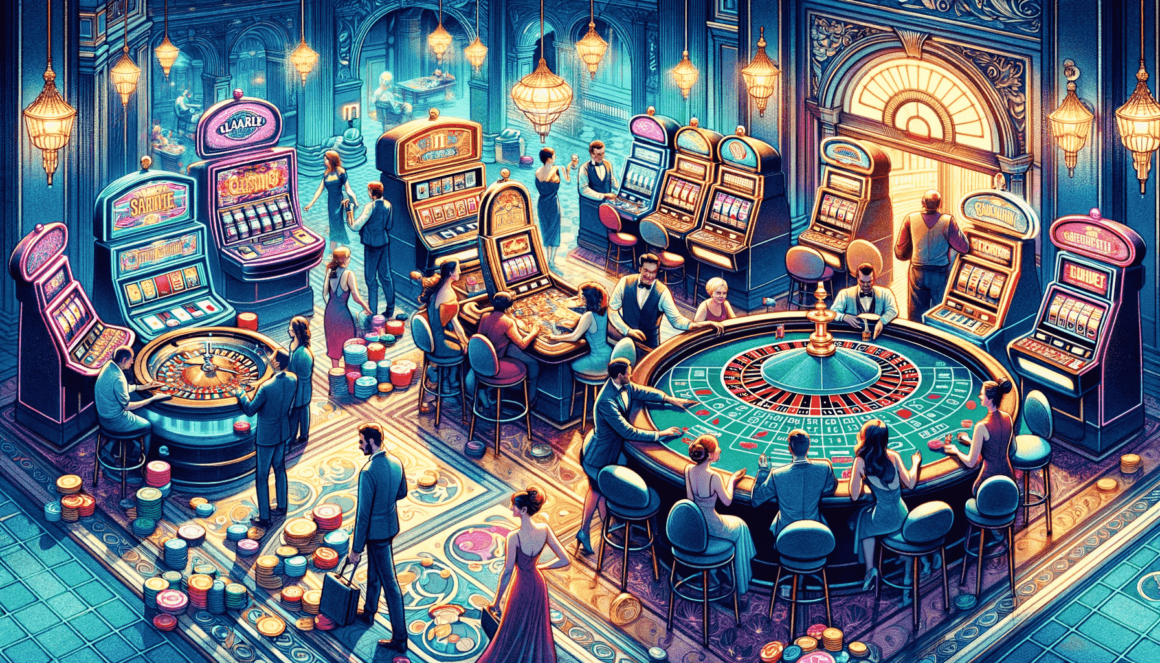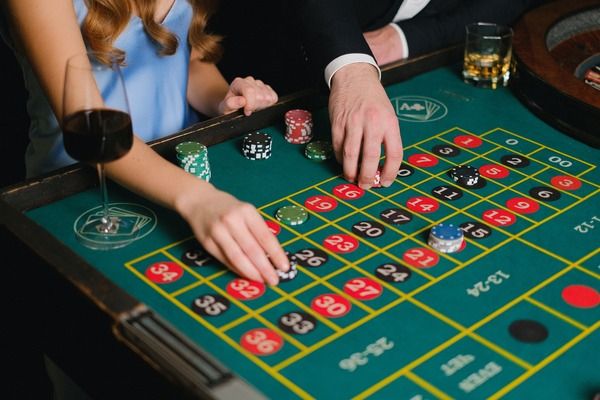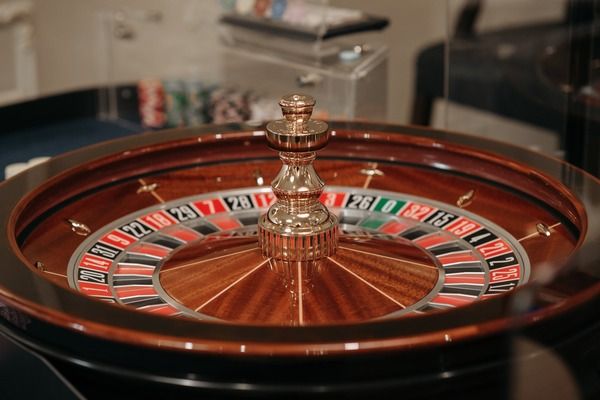Roulette VS Slots – Which Casino Game is Better?
Roulettes and Slots are the two most popular casino games among gamblers, and both are easy to learn and potentially rewarding.
Slots give a fast and thrilling experience, while Roulette offers competitive gameplay on a fancy table game. Both share the same wave of excitement yet differ in so many ways!
In this article, you will discover which offers better odds, gameplay, and payout.
Highlights of the Article
- The creation of Roulette was credited to the French Mathematician Blaise Pascal in the 17th century.
- Playing Roulette requires players to put their bet on numbered squares inside or outside the Roulette table.
- Numbers from 0 to 36 are the numbers found on Roulette Wheels.
- European and French wheels have 18 red and black betting points and a single green zero.
- American Roulette holds the biggest House Edge, meaning the probability of winning is slightly lower than French and European Roulette.
- The most common Slot Machines have 5-reels with a standard 20 pay lines.
- The odds of winning in Roulette are better than in Slot Machines.
- Roulette can provide a payout up to 35x your bet, while Slots can have as much as 80,150x your stake.
Rules of Engagement: Roulette vs Slots

If you’re new to casinos and looking for games to start your luck, try Roulettes and Slots. These two are the easiest to play, with an average-excellent payout!
Playing Slots is not a rocket-science; you need to select which pay lines you want to bet on, and the machine randomly selects what and how many identical symbols land on the reels.
While on Roulette, you decide which numbered pockets in the wheel you want to bet on and wait for what number the ball lands after the dealer spins.
Before deciding which of the two you want to play, look at how Roulette and Slots differ in mechanics, odds, and strategies.
Roulette
The creation of Roulette was credited to the French Mathematician Blaise Pascal in the 17th century. Later, it was developed and is known for what it is today.
Learn more about Roulette, its mechanics, odds, and strategies below.
Mechanics
Playing Roulette requires players to put their bet on numbered squares inside or outside the Roulette table.
After each draw, the player can put their bets again after the dealer clears the previous round.
Roulette Table
Roulette is played on a table. It is arranged into two parts – inside and outside.
- The inside part has 36 numbered squares in either red or black.
- The outside area has a wide range of numbers. Depending on what game you are playing, usually, it’s either a single zero or a double zero.
You can place stakes in any of the squares or combinations on the table.

Roulette Wheel
Wheels in Roulette are numbered from 0 to 36. There are two varieties of wheels depending on what type of Roulette you are playing:
- European and French wheels have 18 red and black betting points and a single green zero.
- American wheels have the same color and number of pockets but have an extra double green zero.
The numbers are arranged in a random order, and it is designed to balance the high, low, odd, and even numbers.

Odds
One of the reasons why gamblers choose Roulette is its odds of winning. It favors the players more than the house, especially French Roulette.
Among all the variants of Roulette, American Roulette holds the biggest House Edge, meaning the odds of winning are slightly lower than French and European Roulette.
| Type of Roulette | House Edge | Number of Pockets | Number of Zeros |
| American | 5.26% | 38 | Double Zero |
| European | 2.7% | 37 | Single Zero |
| French | 1.35% | 37 | Single Zero |
Strategies
Although there is no exact way of winning in Roulette, there are strategies you can apply to pull the luck on your side.
Here are the tips to maximize your chances of winning.
- Prepare your bankroll, and spend within your limit. In a game of chance like Roulette, the possibility of winning is random.
- Choose the type of Roulette you want to play wisely. The game that offers lesser House Edge is French Roulette. However, try playing European first rather than American Roulette if it’s unavailable.
- Place your bet on the outside rather than the inside. These offer more frequent payout and has minimum bet. This way, you can bet without losing a lot of money.
Pros
- Roulette offers interactive gameplay with other players
- It is designed to favor players because of its high RTP
Cons
- The game may require learning several strategies, such as Martingale and Labouchere system for higher rolls.
- It is highly addictive.
Slots
In 1895, the first Slot Machine was invented by car mechanic Charles Frey, and it was a three-reeled spinning Slot with symbols of diamonds, spades, horseshoes, and liberty bells.
The player must land a 3-winning combination of liberty bells to win with a top prize of $0.50. Slot Machines have evolved throughout the years, and their latest version is Online Slots.
Take a closer look at how to play Slots, learn the odds, and discover its RTP.
Mechanics
The most accessible game found in casinos is Slot Machines. To play, you need to place your stake, hit the button to spin, and wait for the symbols to land in the reels.
There are several ways to win the Slots depending on what type of game you are playing, but the most common are the 5-reels with a standard 20 pay lines.
Odds
The chance of winning in a Slot Machine is unknown since RNG software facilitates it. The symbols in reels are shuffled in an erratic order.
However, some types of Slot Machines offer better odds of winning. Virtual Slots have an average RTP of 94%-97%, meaning the house edge is around 6%-3%.
Find a Slot Game with a high RTP because it provides a better chance of winning.
Strategies
- Do not put all of your bet in one machine. The frequency and the amount of your loss do not affect your probability of winning.
- Find a Slot Machine that gives better RTP and a lot of bonuses.
- Bet only on small stakes if you want to entertain yourself while trying to learn.
- If you want to win big, pull your stake in a more considerable amount. The bigger the bet, the larger the payout.
Pros
- It is easy to play and does not require any complicated techniques
- The game offers large bonuses and big jackpots
- It is addictive
Cons
- No techniques that can influence your winnings and outcome as opposed to common rumors in casinos
- The probability of winning is lower than in several casino games, including Roulette
The Match-up: Roulette vs Slots
After knowing the Slots and Roulette and you’re still torn between the two, take a look at how these two games differ in terms of:
- Fast Gameplay
- Better Odds
- Bigger Payouts and Bonuses
- Provides more social interaction
Slots are Quicker to Play
Slots can be played without a dealer compared to a Roulette dependent on a live dealer, except if it’s a video Roulette.
The Slot has the upper hand in speed and convenience because it has an auto-spin feature that skips the queue and reveals the outcome, which Roulette does not have.
There are many types of Slots that are easy to learn and play, especially for beginners, such as Penny Slots.
Roulette Has Better Odds of Winning
The odds of winning in Roulette are better than in Slot Machines. The usual Return to Player rate in brick-and-mortar casinos is 70% to 90%, lower than Roulette.
The different types of Roulette have an RTP of:
- French Roulette – 98.65%
- European Roulette – 97.3%
- American Roulette – 94.75
Video Roulette has an RTP of 97%-99% with their online counterparts, which is higher than the average RTP of Online Slot Machines, around 94%-97%.
Slots Offer Bigger Payouts and Bonuses
Regarding payout, Slot Machine conquers Roulette by a wide margin. Slots can be played with unique features such as bonus rounds, multipliers, and jackpots, making you an instant millionaire.
Roulette can provide a payout up to 35x your bet, while Slots can have as much as 80,150x your stake if you play the high-paying Slot – Mega Fortune.
Slot Provides Little Social Aspect
Slot Machines is not a social game compared to Roulette. The interaction with other players in Slot is lesser compared to Roulette.
Table Games such as Roulette are played in multiplayer, and you can sit and play with your friends while betting in front of a dealer.
Takeaway
Both games offer fun and are easy to learn gameplay. When it comes to Payout, Slot Machines provide better. However, try Roulette if you want a game with more favorable odds.
If you’re still undecided, it’s best to try both games and decide what fits based on your preference.
FAQ
Is Roulette a strategy or luck?
Roulette is the same as Slot Machines. Both are based on luck.
Do slots hit better at night?
No, the probability of winning in Slots does not influence the time since an RNG runs it.
What is the best time to play slots?
There is no best time to play Slots, and the odds of winning are not dependent on any day or any occasion.
 BC.Game
BC.Game  7Bit
7Bit  Ducky Luck
Ducky Luck  SlotsAndCasino
SlotsAndCasino